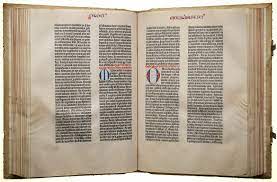
THE POPULAR ENCYCLOPEDIA OF BIBLE PROPHECY
TIMES OF THE GENTILES
In Bible prophecy, the “Times of the Gentiles” refers to a period when Gentile (non-Jewish) nations hold prominence and power over Jerusalem and the Jewish people, specifically during a time when the city is not under their complete control. This period is described in the Gospels (particularly Luke 21:24) and in the Book of Daniel, and is often linked to the Babylonian exile and the subsequent Gentile dominance over Israel.
Here’s a more detailed explanation:
-
-
Gentile Dominance:
It signifies a time when Gentile nations, not the Jewish people, have political and military authority over Jerusalem and the surrounding region.
-
Historical Context:
This period is often understood to have begun with the Babylonian exile and continued through various Gentile empires, including the Persians, Greeks, Romans, and others.
-
End of the Era:
The “Times of the Gentiles” will conclude with the return of Jesus Christ, when the Davidic kingdom will be re-established, and the nations will be judged.
-
Dual Aspect:
The concept has both political and spiritual implications, highlighting God’s dealings with nations and the spiritual transformation of individuals.
-
Online Bible Dictionary TIMES OF THE GENTILES
“Times of the Gentiles” is a period of time in biblical prophecy, primarily defined in Luke 21:24: “They will fall by the edge of the sword and be led captive into all the nations. And Jerusalem will be trodden down by the Gentiles until the times of the Gentiles are fulfilled”.
Key Aspects:
-
Period of Gentile Dominion: This phrase denotes a specific era when Gentile (non-Jewish) powers have significant control and influence, particularly over Jerusalem.
-
Beginning: The period is generally considered to have started with the Babylonian exile in the 6th century BC.
-
Continuation: Jerusalem has remained under Gentile rule through various empires, even after the re-establishment of the state of Israel and regaining control of Jerusalem.
-
End: The “Times of the Gentiles” will be fulfilled when God’s redemptive plan for Israel is brought to completion, and Gentile dominion over Jerusalem ceases, typically associated with the Second Coming of Christ.
-
Biblical Foundation: The concept is supported by prophetic passages in the Book of Daniel, which depict the succession of Gentile kingdoms that would have dominion.
-
Purpose: One understanding is that God allowed Gentile nations to come into power for the spread of the gospel throughout the world, particularly in the first century.
-
Distinction from “Fullness of the Gentiles”: While related, “Times of the Gentiles” refers to political dominion over Jerusalem, while “Fullness of the Gentiles” (Romans 11:25) refers to the spiritual inclusion of Gentiles in God’s salvation plan.
-
Ongoing Fulfillment: Some interpretations suggest that the Times of the Gentiles are ongoing and will conclude with a future eschatological event.
In summary, the “Times of the Gentiles” is a significant period in biblical prophecy characterized by Gentile influence and control, particularly over Jerusalem, which will come to an end with the fulfillment of God’s purposes for Israel.